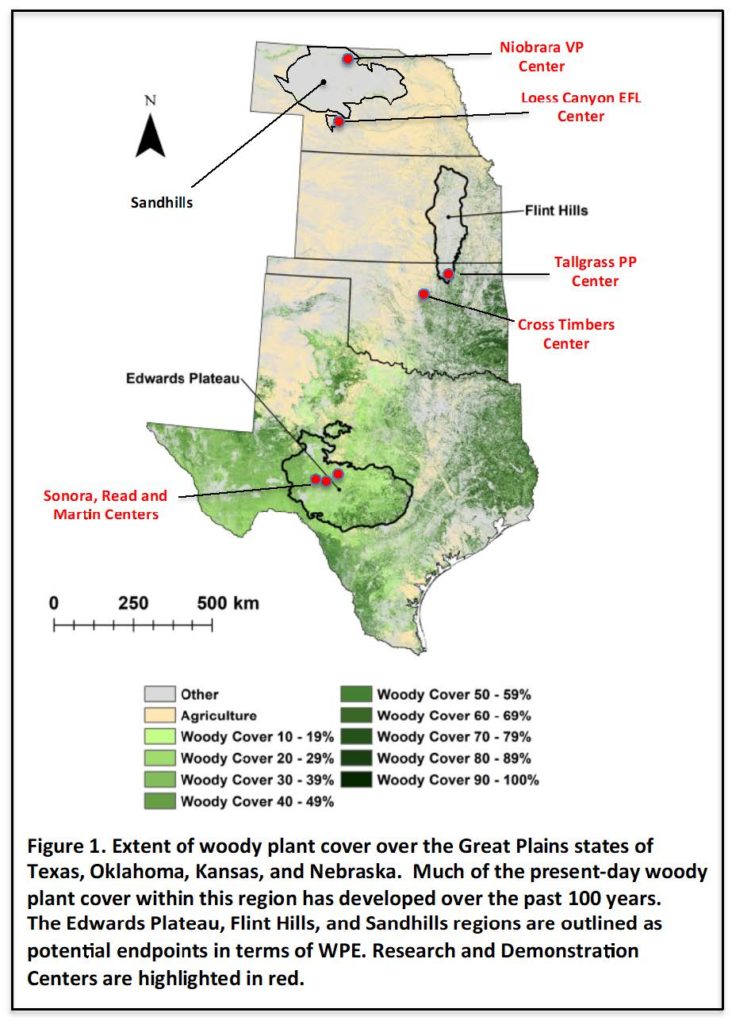
The Great Plains region is the epicenter of the nation’s livestock production. These landscapes are under stress as a result of environmental changes, including woody plant encroachment, an increasingly extreme climate, and the increasing wildfires. Emerging research has identified some management strategies for maintaining livestock production across the Great Plains and increasing it; examples include pyric herbivory and mixed-species grazing (goats and cattle). However, these strategies are not widely adopted. The Prairie Project integrates research, education, and extension programs to facilitate the adoption of new strategies to increase livestock production and promote rangeland health in the Great Plains.
The Prairie Project aims to make rangeland production systems in the Great Plains profitable, productive, sustainable and beneficial to society, by promoting the widespread adoption of pyric herbivory and mixed-species grazing. This project is laying the groundwork for increasing livestock production by at least 20%, increasing the resilience of rural communities. Our research, education and extension agenda, developed from more than a decade of intensive stakeholder interactions across the Great Plains, is powerfully facilitating the adoption of management practices that will lead to increased food production and more sustainable rangelands.
